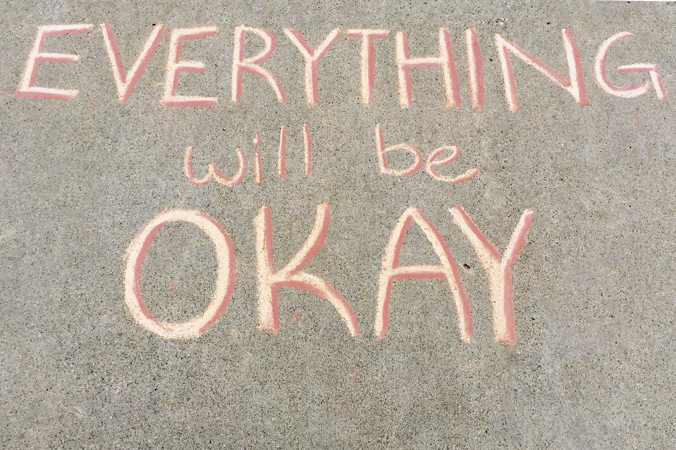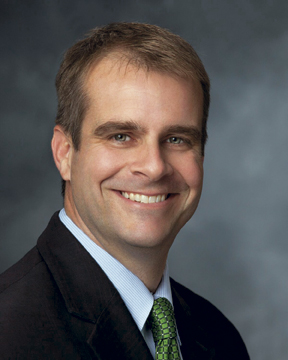WHAT A LONG, STRANGE TRIP IT’S BEEN
Lessons for agencies after the COVID-I9 and civil unrest crises
By Craig Most, CPIA, CIC
The Grateful Dead’s famous countercultural music produced one of rock ‘n’ roll’s most memorable lines: “What a long, strange trip it’s been.” For independent agencies, those seven words might help us reflect on life through the coronavirus and protests/civil unrest crises.
For many, the journey began by staying home rather than commuting, as many of us were forced to shutter our agency offices temporarily and shift to remote work. The journey has also meant mindset shifts and re-shifts for many insurance professionals and customers.
If you’re like me, you’ve started to learn from these events. I’ve adopted a “don’t wait” posture and leaned toward action. Not all actions might have worked out for the best, but we had to move the agency and our customers forward.
How about you?
- How did you prep your people during these traumatic times?
- Have you adjusted your review or new-client processes?
- Did your firm update the way you communicate with clients?
It is vital to reflect on these questions and experiences in order to learn invaluable lessons. But it’s better to also create positive change. That’s true for our roles as independent agents as well as in serving our communities and charitable work that agencies across the country have done for years.
One of my biggest lessons as the coronavirus and civil unrest roiled our community and nation in spring 2020 has been to look for the familiar. Serving markets primarily in Florida, my agency had the advantage of experience with hurricanes. In fact, early on in the coronavirus lockdown, the environment felt like we were awaiting hurricane landfall. Policyholders expressed anxiety and asked questions Carriers shifted resources. My agency, similar to yours I’m sure, felt the need to take care of our agency team and their families, too.
Our attitude has always been that, as one event passes or changes, another wave comes along trying to knock us off balance. It’s like going to the beach, and not letting the surf push you back on your pursuit out to the sandbar.
This was easier than any named storm, though: We had electricity and air conditioning! That’s like heaven compared with what it’s like after a hurricane comes through, when you lose power for a week and try to take care of customers and file claims when you can’t even turn on the lights. This has been an easier workplace disruption, because we do have Internet and system access and employees aren’t being displaced from their homes, just their office.
Given how my agency had learned lessons from other disasters, there was no excuse for me to not be better—for my team, my clients and my carrier partners—in this novel situation.
Agency management lessons
Most Insurance made it a priority to provide a steady, calming work environment, which projects positively with policyholders, prospects, and carrier partners. Our attitude has always been that, as one event passes or changes, another wave comes along trying to knock us off balance. It’s like going to the beach, and not letting the surf push you back on your pursuit out to the sandbar.
I pride myself on open communication within our agency. Even so, I found that frequent communication with the agency team was job one. Communication includes listening—not just talking—to team members and really finding out how they are doing and feeling. The more open and honest communication I had with my team, the better data the entire team had to make decisions.
If the employee’s “head space” is just not in a good place—say they’re worried about their mom or their children—then how focused can they be and how ready can they be to take care of the customer? And so, I really focused hard on taking care of the team to the best of my ability. Doing so sets them up to be in the best position to then take care of the customer. Team comes first.
The lockdown reinforced the mantra I try to follow: Take care of the team, and they will be in a good position to take care of the customers. That could mean everything from providing supplies to dealing with issues in working remotely to balancing children’s schooling from home and more.
There is not a one-size-fits-all answer. Being nimble is key to minimizing disruption.
Retention and sales lessons
My outlook has always been that insurance customers want and need frequent, valuable connection and engagement. This lockdown reinforced that need. The uncertainty in the world created different scenarios for each client. Being present was the best thing we could do for them, to address immediate needs. The conversations we have with them open up sales opportunities.
Some clients who ended up not working or were operating from home had more time to go through replacement cost guides on their home, or they had more time to look at their policies. Those scenarios created chances to educate insureds. We also had conversations with folks that we hadn’t really spoken to in quite some time. We went through a period of about 10 days during early to mid-March—as things were starting to close down—that phone traffic slowed down. But after that, phone calls really ramped up to the point that, at moments, we could not get enough staff to be available for phone calls.
But the conversations, when they started, couldn’t be normal. We changed our phone calls to be more aware and sensitive to a client. There was just increased demand to talk, more than anything else. While some of this might not have been covered in sales education classes, those courses from AIMS Society and elsewhere taught us to listen and be flexible.
We changed the language in our direct mail pieces. We found people were actually reading their mail more because they were home and had the time to do so. We worked on more mailers, instead of just email, and that’s what people seemed to call more often about. Getting an envelope was exciting. It was a connection with someone.
We had to be flexible to meet different expectations. For instance, if a customer was open for business, they might still want to meet face to face. Or they might prefer us to handle everything electronically. We had to combine that balancing with normal fears of people during the lockdown. In short, we could not just stop all prospecting until the world could go back to normal and then start up again.
Every independent agency has a constant need for new business. The lockdown meant new potential threats of turnover, so we had to increase our agency’s retention efforts in some cases. At the same time, we had to learn on the fly to be more agile to reach new prospects.
To me, open dialogue about what matters most to a client is most important in insurance sales. Simply taking an order is not a service to a client. But communication and education are. It’s important to ask a prospect or customer if saving money is really the most important thing. To some clients it might be, but at what expense? Are they protected?
When insurance can provide options, take the time to educate. Then let the clients decide what is most important. Ultimately the client will make a decision, but as an agent I want it to be an educated one.
Likewise, part of the sales process is to help customers realize there are some things insurance does not cover. Insurance professionals like us can still help the client plan what to do about those things.
Technology lessons
During the pandemic, use of technology also came under strain. Did it fall short or prove more useful than ever? For us, the use of tech was essential. When the lockdown hit, our offices were among a few InsureOne agencies that were in the midst of a management system conversion; placing all sister agencies across the country onto one platform paid dividends. We could leverage best practices and solicit/provide assistance from/to other agencies in different parts of the country, each facing varying degrees of pandemic, protests, and other challenges.
Changing tech systems was stress-ful for sure. Replacing our management system meant simple business processes became much harder, as we were just starting to relearn them for the new system.
 Becoming system-savvy is vital, but your agency will only be as good as the data you have in your system. Nothing is more important than accurate data, whether through download or data entry. Two must-haves are correct client information and accurate downloads.
Becoming system-savvy is vital, but your agency will only be as good as the data you have in your system. Nothing is more important than accurate data, whether through download or data entry. Two must-haves are correct client information and accurate downloads.
Near my house, there were rioting and fires, and some businesses were burned to the ground. While this was harrowing, knowing different perspectives from peers around the country helped. That lent support and ideas to work through various issues.
For instance, while Most Insurance wasn’t affected by claims, parts of towns near Tampa were closed down. Employees had to drive different routes to get home. That wasn’t a claims issue, but it was a matter of productivity and employee safety. For me, the question became: How do I make sure people are comfortable with the work environment so they can do their jobs and take care of customers?
As I look at 2020 thus far, I’m going to look for the silver lining, even on this long strange trip that carries on. I’ve realized that none of us can solve this pandemic and civil unrest by ourselves. But we can work in our little corner of the world and do the best we can. And I’m hoping that as a society, we each take these lessons and move forward. n
 The author
The author
Craig Most, CPIA, CIC, is agency principal with Most Insurance (www.mostins.com), Tampa, Florida, founded in 1973 and now part of the InsureOne Insurance family. Most Insurance is a past Rough Notes cover agency, and Craig serves on the magazine’s agents editorial advisory board. Craig also is a board member of the AIMS (American Insurance Marketing and Sales) Society, a nonprofit association that delivers training, information, and networking to increase personal and agency sales production of P-C agents. InsureOne is the entity combining standard personal and commercial insurance businesses across the U.S. for Confie, a national agency for personal/commercial lines.





